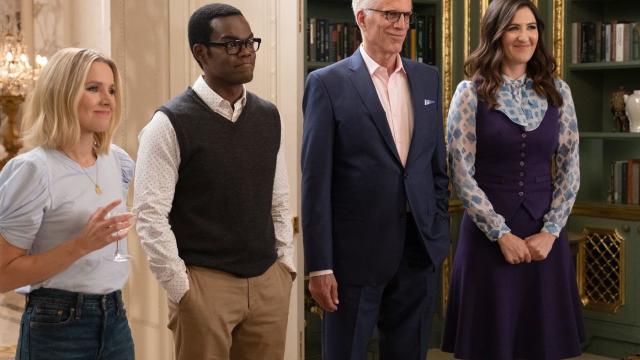Twenty-twenty has been a year of seeking comfort in media, both in the nostalgia of old favourites and the exciting discovery of new and excellent stories. This year, more than any recently, we’ve looked for new bonds and new characters to fall in love with. Here are the heroes who kept us going as this long, long year trundled on.
Aerith Gainsborough, Final Fantasy VII Remake
A child of the early ‘90s, I am That Final Fantasy Fan you always hear about: the one whose mind and heart was shattered by the death of Aerith (née Aeris, as she was in the original translation) at the villainous Sephiroth’s hands in Final Fantasy VII. Her shocking exit imprinted on me in ways that are — bizarrely, for a video game about spiky haired weirdoes casting magic and swinging swords the size of small nations to save the planet — profound and fundamental. So revisiting her in this year’s Final Fantasy VII Remake was a process I dreaded and looked forward to for a long time, a chance to re-experience a character I loved, but to re-process the bizarre grief I’ve known since I was six years old. Suffice to say, Remake left me, multiple times, a gibbering, emotional wreck.
[referenced id=”1657359″ url=”https://gizmodo.com.au/2020/12/the-best-pop-culture-we-caught-up-on-in-2020/” thumb=”https://gizmodo.com.au/wp-content/uploads/2020/12/11/mobile-suit-gundam-300×146.png” title=”The Best Pop Culture We Caught Up On in 2020″ excerpt=”It has been a year of weirdness, especially when it comes to wrangling the kinds of media we’ve been watching. Though there’s been new things to read, watch, listen to, and play, 2020 has seen many of us revisit familiar favourites as well as things we missed when they first…”]
But its Aerith was not entirely the Midgar Flower Girl of the original game. She, like so much of Remake, was reshaped, recontextualized into something more, as the project gestured at sweeping changes to the canon fans have known for decades while its characters defiantly fight fate. Aerith is the one that leads the charge, rebuking the tragedy of the fate I and millions of other players knew was ahead of her to say that her story and whatever is to come is her own to decide: a powerful, hopeful defiance that lifted my weary heart more than it probably should’ve. — James Whitbrook
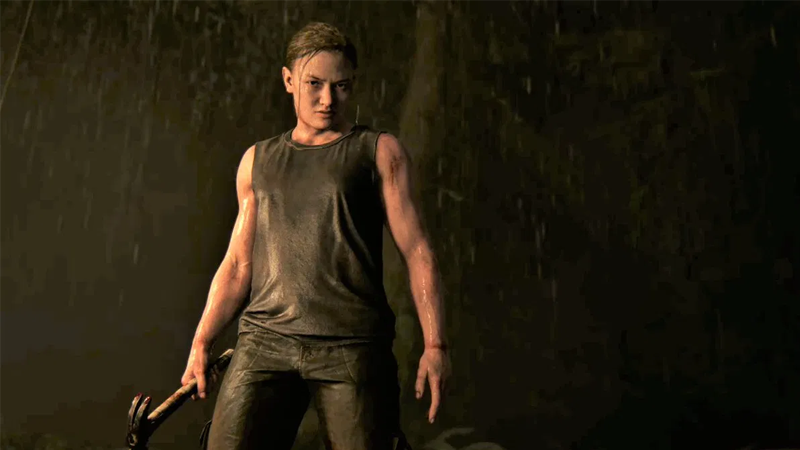
Abby Anderson, The Last of Us 2
The first big thing Abby does in The Last of Us Part II is kill someone we love. Not exactly a hopeful start. Despite that, the eventual co-lead of the zombie video game won us over. As the story unfolds we realise Abby has lost everything she had, everyone she loved, and yet still fights to save the less fortunate. Her rivalry with Ellie is born out of unfortunate consequences, not hate, and through her story, we learn to judge a person by the content of their character and to be inspired by their resilience, courage, and ability to love in the direst of circumstances. — Germain Lussier
[referenced id=”1625969″ url=”https://gizmodo.com.au/2020/12/how-horror-helped-us-survive-2020/” thumb=”https://gizmodo.com.au/wp-content/uploads/2020/12/02/horror-we-love-300×168.png” title=”How Horror Helped Us Survive 2020″ excerpt=”It’s tempting to think that since 2020 was basically one real-life nightmare after another, the last thing anyone would want to do is engage with fictional horror on top of that. But that would be discounting the positive power of certain horror movies, TV shows, and video games that helped…”]
The Soul Squad, The Good Place
The Good Place spent four seasons teaching us about moral philosophy and ethics, giving us the framework to understand the world in a different way. But its final lesson, the one that saved this life and the next, may have been the one we needed the most: Sometimes all you can do is try, and that’s enough. It’s a beautiful message that says failure is ok, even good, so long as you get back up and try again. It’s not always easy to do the right thing — we’re fallible beings and we often make mistakes — but for the Soul Squad to stand before the Judge and declare that trying is enough, and to have that be enough to save the universe, was inspiring to watch. — Beth Elderkin
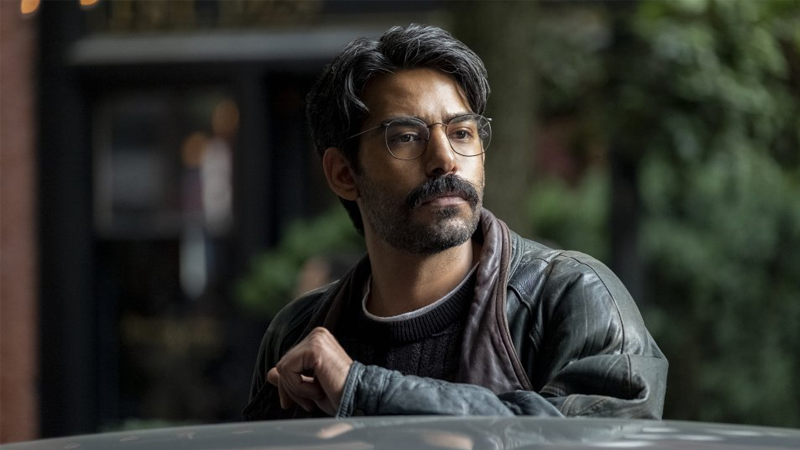
Owen Sharma, The Haunting of Bly Manor
One of the biggest surprises of Netflix’s The Haunting of Bly Manor had zero to do with anything supernatural. Instead, it took the form of a spectacularly mustachioed character named Owen Sharma (iZombie’s Rahul Kohli), whose incredible warmth and culinary gifts meant the kitchen was the one place in Bly Manor — a house full of tragic secrets and evil spirits — where the other characters, as well as the audience, could feel completely at ease. While Owen endures his own moments of sadness and loss as the series progresses, his positivity never diminishes, nor does his apparently bottomless enthusiasm for corny puns. — Cheryl Eddy
[referenced id=”1656871″ url=”https://gizmodo.com.au/2020/12/the-best-animated-series-of-2020/” thumb=”https://gizmodo.com.au/wp-content/uploads/2020/08/06/fwugtyuae5atg33bigcg-300×169.jpg” title=”The Best Animated Series of 2020″ excerpt=”While live-action productions were dealt a significant blow this year by the ongoing covid-19 pandemic, the animation industry was in a prime position to step up to the plate and tell some of 2020’s most riveting stories. Here are the ones that transported the Gizmodo staff to far-off worlds and…”]
Ahsoka Tano, Star Wars: The Clone Wars
A vital chapter of Ahsoka Tano’s story came to a close with The Clone Wars’ final season this year, and although we already knew where her path would lead thanks to Star Wars Rebels, (and that she would survive the tragedy of Order 66 in the process) there was something incredibly powerful about watching that dark chapter of the Republic unfold around her. Ahsoka was already one of my favourite Star Wars heroes, a character I got to watch grow up as I grew as a young adult, whose view of the Jedi Order and their place in the world aligned and radicalized with my own. But to see her rebuild who she was and what she stood for, as she let go of everything she thought she loved, to survive the sea change of Star Wars’ rise of the Empire, was extremely cathartic. Her endurance, even if guaranteed, still remarkable to watch unfold. That, and the bit where she jumped out of a drop ship and owned a bunch of Mandalorian supercommandos before landing was pretty damn cool. — James Whitbrook
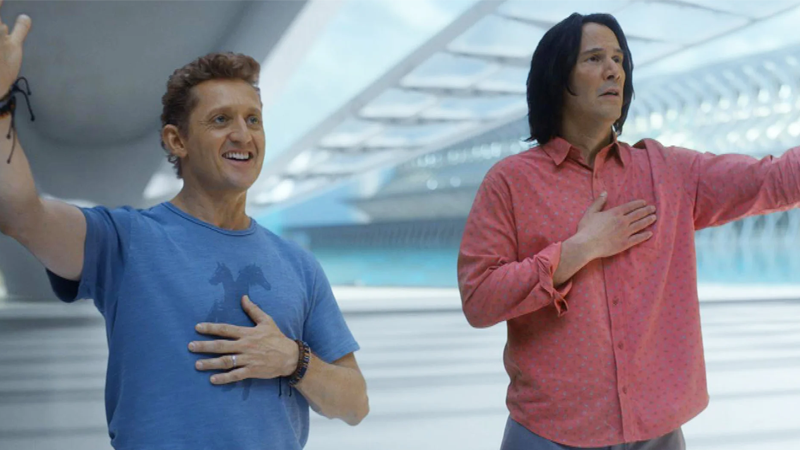
Bill and Ted, Bill & Ted Face the Music
That Bill and Ted came back, at all, almost 30 years after their last movie is enough to make you say “Hey, 2020 wasn’t all that bad.” Their excellence goes beyond that though. Grown-up Bill and Ted were the same duo we always knew — naive, ultra optimistic, aloof — but this time they were also husbands and fathers. Over the course of Face the Music we see the teen Bill and Ted we remember from our pasts as viewers, and their past as character, become awesome, responsible adults, mending relationships with their significant others and realising it was never them who would save the world, but their kids. That growth just makes us all want to be excellent to each other. — Germain Lussier
[referenced id=”1355798″ url=”https://gizmodo.com.au/2020/09/bill-ted-face-the-music-caps-the-franchise-most-excellently/” thumb=”https://gizmodo.com.au/wp-content/uploads/2020/08/31/billandtedfacethemusic-300×169.jpg” title=”Bill & Ted Face the Music Caps the Franchise Most Excellently” excerpt=”Take Excellent Adventure, tie in Bogus Journey, shove them through time as well as a modern lens, and you’ve got Dean Parisot’s Bill & Ted Face the Music, the very funny, very moving, very fitting third film in the saga. It is most triumphant, with only a sprinkle of heinous.”]
Sara Lance, DC’s Legends of Tomorrow
Who would’ve thought that the vengeful undead Canary from Arrow would one day rise up to become the badass captain of the Waverider, getting her crew in and out of timey-wimey shenanigans on a weekly basis? Legends of Tomorrow’s Sara Lance (Caity Lotz) is the kind of fearless leader we can all get behind. She’s fun and unpredictable, down to have a good time in whatever time period she finds herself in, but she will always put her team first and get the job done. It’s also been great seeing the equally badass Lotz step behind the camera, directing an episode of season five and at least one more in the upcoming season six. — Beth Elderkin
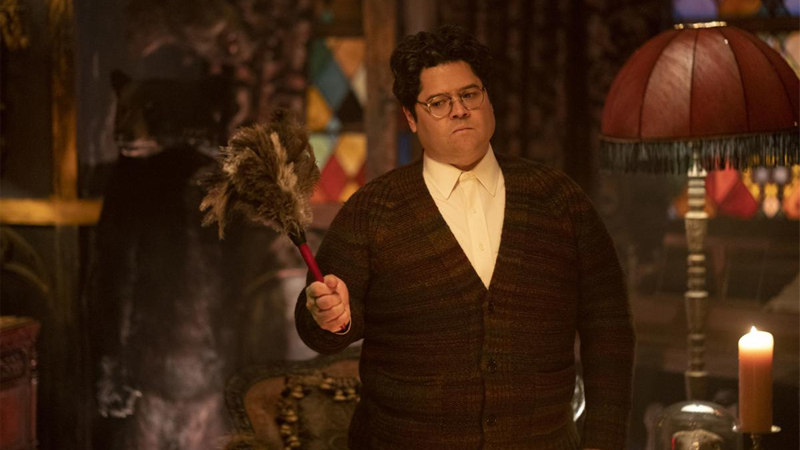
Guillermo De la Cruz, What We Do in the Shadows
Guillermo (Harvey Guillén) wants to be a vampire more than anything. That much is clear. But he also wants to be respected, a desire that very nearly overtakes his primary dream in What We Do in the Shadows’ second season. Fed up with waiting for Nandor (Kayvan Novak) to grant him the supernatural transformation he’s been longing for (while enduring insults and performing some of the grossest grunt work imaginable), Guillermo explores the idea of independence as well as the possibility of finding a new master. Ultimately, though, his deeply loyal heart inspires a heroic, last-minute rescue of his vampire friends in which he…reveals he’s secretly a top-notch vampire killer, and then stakes all their enemies. What will season three bring for Staten Island’s sweater-clad slayer? We can’t wait to find out. — Cheryl Eddy
[referenced id=”1654365″ url=”https://gizmodo.com.au/2020/12/the-best-sci-fi-fantasy-or-horror-movies-gizmodo-rewatched-in-2020/” thumb=”https://gizmodo.com.au/wp-content/uploads/2020/12/04/the-rocketeer-300×169.jpg” title=”The Best Sci-Fi, Fantasy, or Horror Movies Gizmodo Rewatched in 2020″ excerpt=”Twenty-twenty hasn’t been good for much, but it has been given us bountiful free time — time you hopefully used to finally make good on that statement “Oh, I’d love to watch that but I don’t have time.” Well, in 2020 you did. As a result, many of us revisited…”]
Zagreus, Hades
Had Final Fantasy VII Remake not come out, Hades, Supergiant Games’ incredible take on the roguelike genre of run-based, stat-driven character action would probably be my favourite game of the year by a considerable margin. Its incredible storytelling conceit to make the idea of repeated runs of content have weight beyond mechanics, its snappy action, its sumptuous art and music, it’s all so good. But why I fell in love with it was its lead character: Zagreus, the Prince of Hell, who spends the game defying his titular father to escape the Underworld with the help of his distant relatives in the Greek pantheon.
Aside from being a cute demigod with a sarky British accent and good hair, many things made exploring his plight utterly compelling; Zagreus’ endurance and persistence as he uncovered the mystery of the traumatic divide between himself and his father, his relationships with the Gods of Olympus, and his own legacy. Time and time again, he faces setbacks and excruciating agony to defy divined fate, defy death itself, to make his own path in the world and understand himself. A deeply human and relatable plight, divine being otherwise. — James Whitbrook
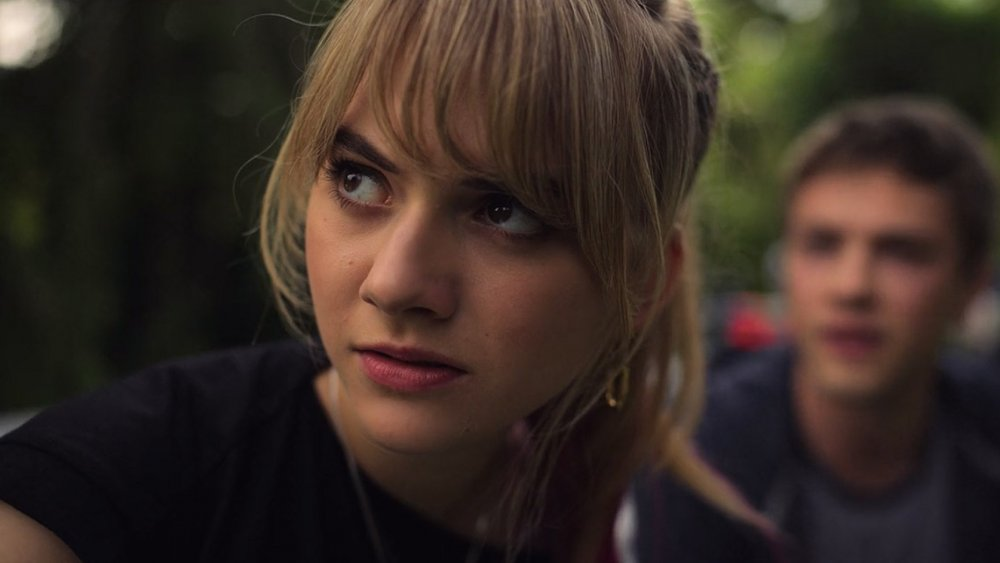
Kinsey Locke, Locke & Key
Anyone who can go into their head, literally rip out all the fear, and kill it is pretty damn awesome. Such is the case with Kinsey from Netflix’s adaptation of Locke & Key. Even before she conquered fear, she was hugely relatable and cool, shy but smart, embarrassed but curious. Over the course of the story she became more confident and courageous — and sometimes a little stupid. (After all, she’s a teenager.) Ultimately though, she, along with her family and friends, defeat the evil Dodge and live to fight another day as keepers of some of the universe’s most powerful possessions. A great arc for a great character, and we’re interested to see where the series takes her next. — Germain Lussier
[referenced id=”1626376″ url=”https://gizmodo.com.au/2020/12/our-favourite-gizmodo-videos-of-2020__trashed/” thumb=”https://gizmodo.com.au/wp-content/uploads/2020/12/03/pf4rhgn82qt7ll12uxv6-300×169.jpg” title=”Our Favourite Gizmodo Videos of 2020″ excerpt=”Oh, goodness: What a year, right? Twenty-twenty is one of those (hopefully) once-in-a-lifetime events that impacted so much of our lives. We saw countless movie delays, comic cons were cancelled or moved online, theme parks shut down, and everything had to happen over video. In spite of the challenges, Gizmodo…”]
Scorpia, She-Ra and the Princesses of Power
All I want in life is a hug from this scorpion lady! Scorpia started as one of Catra’s main henchwomen in She-Ra and the Princesses of Power, but as time went on it became clear that there was so much more to her. Much like Kipo from Kipo and the Age of Wonderbeasts, Scorpia was sweet and hopeful, generous and kind, always wanting to do right by her friends. She saw the best in people, even when they didn’t see it in themselves. But her generosity wasn’t reciprocated by Catra and the Horde, and ultimately Scorpia chose to leave instead of withstanding the abuse. It was only then that Scorpia discovered her true strength as a Princess of Power, reclaiming her family’s heirloom and taking her place with the other princesses. It just goes to show that love always wins and it’s never too late to embrace your own goodness. — Beth Elderkin
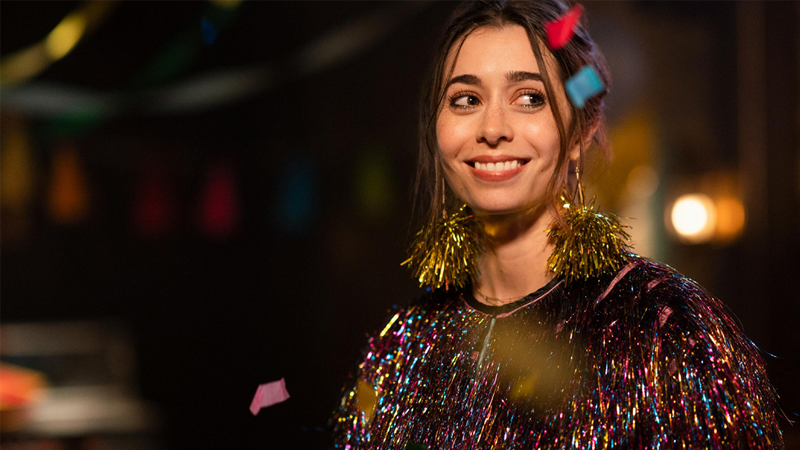
Sarah Wilder, Palm Springs
At first, being stuck in a time loop would actually be pretty cool — you could live without consequences or fear of any kind. Before long, though, existential dread would start to creep in. If we had to be trapped reliving the same day over and over, we’d want to be there with the funny, smart, charmingly flawed Sarah (Cristin Milioti). In Palm Springs, she goes through all the stages of ecstatic delight and agonizing despair you’d expect of someone in her predicament but is somehow always fun to hang out with, even at her worst. And her heroism literally explodes off the screen when she figures out how to escape the loop in the end. — Cheryl Eddy
[referenced id=”1659198″ url=”https://gizmodo.com.au/2020/12/the-pop-culture-highlights-and-lowlights-of-2020/” thumb=”https://gizmodo.com.au/wp-content/uploads/2020/12/18/fp88kijweah7l9r6lxoi-300×169.jpg” title=”The Pop Culture Highlights and Lowlights of 2020″ excerpt=”In a year full of all kinds of bad real-world news, pop culture still managed to poke its head up periodically to remind us that not everything sucks. Of course, this being 2020, that same realm also managed to leave a few steaming piles for us to step in, too….”]
